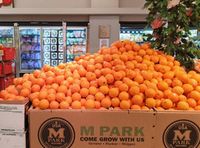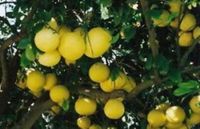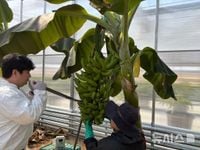The Rural Development Administration (RDA) and the Ministry of Food and Drug Safety (MFDS) convened on April 16, 2025, in Cheongju-si, Chungbuk Province, to address the management of pesticide residues in response to expanding subtropical crop cultivation in South Korea. The meeting, held at the Osong C&V Center, focused on enhancing the use of pesticides for domestically grown subtropical crops and establishing residue tolerance standards.
Since its establishment in September 2013, the 'Consultative Body for Safe Management of Pesticide Residues' has aimed to improve pesticide safety management for agricultural products by discussing and coordinating the establishment and revision of pesticide residue tolerance standards. This initiative has gained urgency as climate change has led to an increase in the cultivation area of subtropical crops like oranges, hallabong, papaya, dragon fruit, and bananas, which are gradually expanding from Jeju Island to inland regions.
Farmers have reported facing significant challenges due to the limited number of registered pesticides available for use on these crops. Current residue tolerance standards include 40 for oranges, 19 for papaya, 17 for dragon fruit, 4 for bananas, and a single standard for hallabong. These restrictions have raised concerns among farmers who require effective pest and disease control methods to ensure the viability of their crops.
During the meeting, representatives from the RDA and MFDS discussed the need to alleviate these challenges by expanding the registration of pesticides suitable for controlling pests and diseases in subtropical crops. They also addressed the establishment of new residue tolerance standards to better support farmers.
In particular, the agencies highlighted the growing interest among farmers in cultivating hallabong, a type of citrus fruit, which has similar pest and disease occurrence patterns and cultivation methods as oranges. The agencies agreed to consider applying pesticides approved for oranges to hallabong and to expedite the establishment of corresponding residue tolerance standards.
The RDA emphasized the importance of sharing information regarding emerging pests and diseases, particularly those resulting from climate change and the influx of foreign pests. This collaboration aims to enhance the cultivation environment for high-quality agricultural products and ensure effective crop management.
Furthermore, the MFDS expressed its commitment to proactively managing pesticide residue tolerance standards for subtropical crops, thereby fostering an environment conducive to the distribution of safe agricultural products. The agency aims to support the development of related industries, ultimately contributing to increased farm household income.
The MFDS stated, “We plan to strengthen cooperation with relevant departments to operate a science-based safety management system, ensuring that the public can consume our agricultural products with confidence.” This approach reflects a broader strategy to enhance food safety and promote consumer trust in domestically produced goods.
As subtropical crop cultivation continues to expand in South Korea, the collaboration between the RDA and MFDS is crucial for addressing the evolving needs of farmers and ensuring the safety of agricultural products. By establishing clear pesticide residue tolerance standards and expanding the range of pesticides available for use, these agencies aim to support farmers in overcoming the challenges posed by climate change and market demands.
In conclusion, the ongoing discussions and initiatives led by the RDA and MFDS represent a significant step towards improving the agricultural landscape in South Korea, where subtropical crops are becoming increasingly important. By fostering a safe and efficient agricultural environment, these efforts not only benefit farmers but also contribute to the overall health and safety of consumers.



